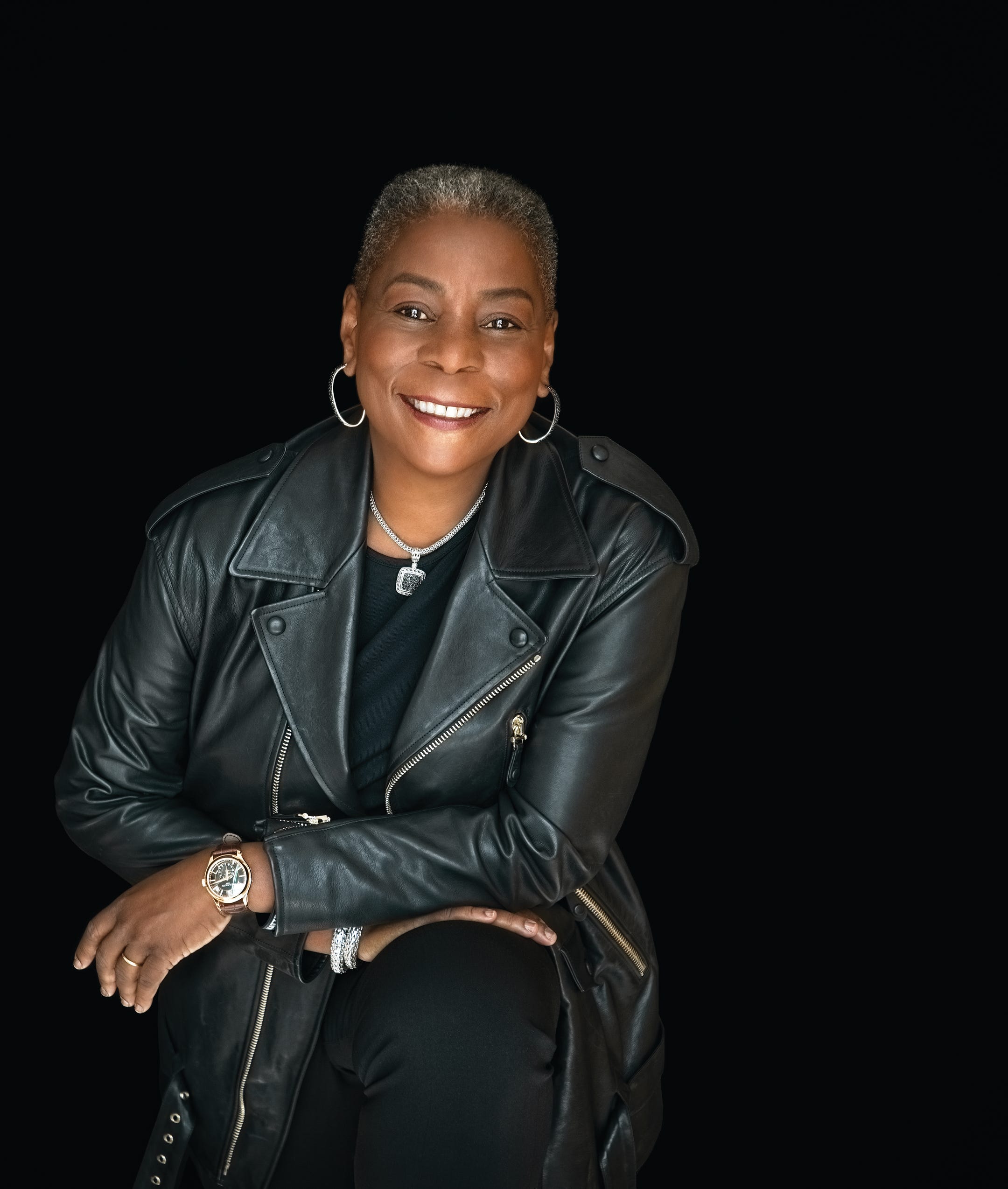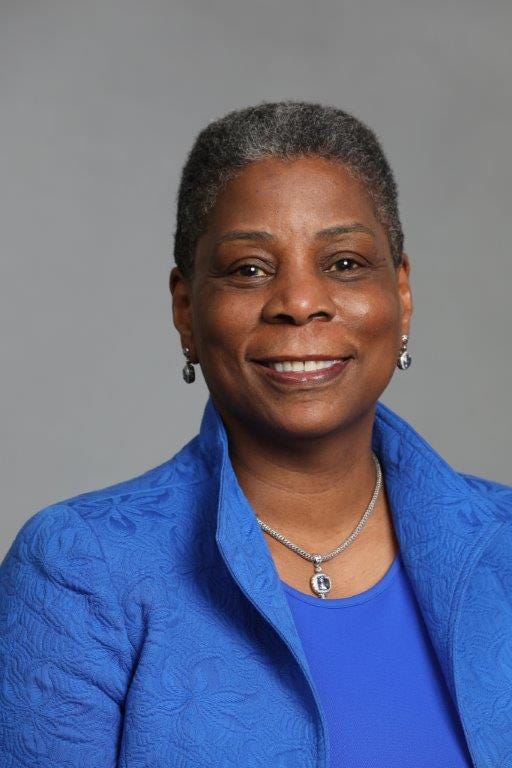
Photo: CLAUDIO MARINESCO
In 2009, Ursula Burns became the first Black woman to run a Fortune 500 company.
When she stepped down in 2016, there were no other Black women in the role. Today, there are two.
Burns, who sits on the boards of Exxon, Uber and MIT, isn't willing to wait another few decades for more diversity at the top of America's corporations.
As last year's social unrest puts pressure on companies to reckon with gaping inequalities, she's leading the fight for racial justice in the corner office and in the boardroom.
"We have to fundamentally change institutions," she told USA TODAY in an interview.
Burns, who was raised with her brother and sister in a housing project on the Lower East Side of New York City by a single mother from Panama, studied mechanical engineering, earning a master’s degree from Columbia University.
Her mother told her: “Don’t let the world happen to you. You happen to the world."
After joining Xerox as an intern in 1980, Burns rose quickly through the ranks and took over for former CEO Anne Mulcahy as the nation reeled from the financial crisis and as the dawn of the paperless office threatened the copy machine maker.
The author of a new memoir, "Where You Are Is Not Who You Are," Burns now leads the Board Diversity Action Alliance and is dedicating herself to reversing the sharp underrepresentation of people of color and women of color in corporate America.
A USA TODAY analysis found that more than a year after George Floyd’s murder spurred corporate pledges for change, deep racial inequalities persist at every level of the nation's largest and most highly valued companies, creating sharply disparate outcomes for people of color, especially women.

Black and Hispanic workers are underrepresented in the highest-paying and most influential positions, as well as in the ranks of professionals, such as lawyers and marketers. What’s more, at the lower levels of organizations, they are concentrated – and often overrepresented – in roles such as administrative assistants, technicians and laborers.
Burns says the USA TODAY analysis reveals how much progress is needed to reverse patterns of exclusion that are still limiting job opportunities, career advancement and wealth generation nearly six decades after President Lyndon Johnson signed the Civil Rights Act.
She spoke with USA TODAY on how corporations can root out discrimination and give people of color and women of color a fair shake.
The interview transcript has been edited for length and clarity.

Why corporate America must root out racism
We have tried to convince people to be altruistic. “Don’t you know there is a moral dilemma here, that there’s a moral imperative here?” Which there is.
But significantly more than a moral imperative is that the math doesn’t work out anymore. Two-thirds of the population of the world is not white and is not male, and the white male population is aging. We have to look economically at this problem.
And we have to fundamentally change institutions. You look at hospitals. You look at governments. You look at companies. You look at private and public institutions of any sort. You look at the power and it is concentrated in a very small group. And what we have ended up doing is trying to contort ourselves into the structures they have designed.
This is what they say: “I now need to hire some directors and there are none.” And I say: “You’re right. There are less nonwhite directors than there are white directors. They haven’t been prepared. You don’t make a Black director in a day.”
But they haven’t been willing to adjust the systems. Companies have not paid attention. Government has not paid attention. There are not adequate school systems. There are not adequately trained teachers. There is not adequate funding in the places where a lot of Black and brown people live.
It’s not an easy answer. You don’t say “We know we want it now” and then turn to the group and say: “Why aren’t there more of you? We are looking for you. Where are you?”
That is a good question to ask, but not of the group. You have to ask that question more broadly.

How corporations can begin to close the race gap
First, look at your own company. Start at the C-suite and board level, diversify that. Then go down further in the organization.
Go into the communities where you employ people and draw resources from. Engage in the infrastructure of those communities. Get interested in policing in the communities. Get interested in voting in the communities and building the community to be a strong community.
Second: facts and data. Transparency is huge. How are you doing? What are your goals? What is the gap? How are you going to fix it?
And that has to be transparent enough that the interested people – governments, consumers, shareholders – can see it and can make decisions about whether you’re performing well and whether they will keep you in your position or keep you in their community.
It’s what I call the project management approach. Put your money where your mouth is. Figure out the things you are going to work on. Know that some of it is going to take a while.

Why Ursula Burns supports diversity quotas
For people who fail, we have to put in additional support and monitoring. That means things like quotas in certain industries.
I have been an anti-quota person, but I have now turned toward quotas. Because we have been talking about this for how long?
We said: “Please do it.” They said: “I will.” We look 10 years later and we say: “Please do it.” And they say: “We will.” That’s probably 70 years of saying “Please do it.”
When they put in the quotas for women directors in California, guess what happened? They found them somewhere. They literally appeared.
No drop in quality. If anything, there was an improvement in quality. Leaving it up to people to do it all alone has proven to not be effective.

Why consumers should vote with their wallets
I talked to a company that said: “This issue is not an issue we feel like we need to deal with right now. We have other issues to deal with.”
Profitability is not an issue you are going to think about tomorrow. You are not going to think about obeying the law later. Diversity is not an issue that you think about later. And you can’t think about unfairness later.

He called back, of course, and said he got it wrong, but I said, "That’s it. I am going to stop using your stuff plain and simple. I am going to stop my friends from using your stuff until you change your approach here. You are telling me you don’t think this is important, that I’m not important."
Consumers have a massive responsibility. Know more about these companies and vote with your feet and your mouth.

Why Black women are the least represented in corporate America
We are the largest trailing class of citizens right now.
If you think about all this advocacy we have had over the years. We have had advocacy for women. We have had advocacy for African Americans, generally men.
White women think there is nothing unique about us. They think a solution they put in will work for us the same it works for them. They fall into the same trap that white men have for years.
Black men, when you go to them and say “Will you look out for us?” same thing, same issues. All the policies work for Black men, but are not tailored for Black women.
Back in the beginning, we assumed that it would be handled. Today with this push for more diverse boards and CEOs that we are doing, white women are benefiting, Black women are not.
We have to be aware that race trumps gender every single time. They would prefer to hire a white person, including a white woman, before they hire a Black person. And if they are forced to hire a Black person, they hire a Black man before they even think about us. We have zero advocates.

More in this series
- ‘We are fundamentally a racist and sexist society’: How top companies in US are struggling to diversify leadership
- Workforce data: What Amazon, Disney, Walgreens and others won’t tell you about the diversity of their workers
- ‘The new plantation’: How (and why) tech’s corporate giants haven’t successfully diversified their workforces
- Q&A: ‘Values cannot be words on a wall’: PayPal CEO Dan Schulman on why corporations must end racial discrimination
- Explore: Search our database of EEO-1 employment records
- Banking: Black and Hispanic workers make headway as bank managers, but white people still dominate executive level jobs
- Food retail: America’s executives at Coke, Costco, Pepsi and Starbucks still mostly white and male